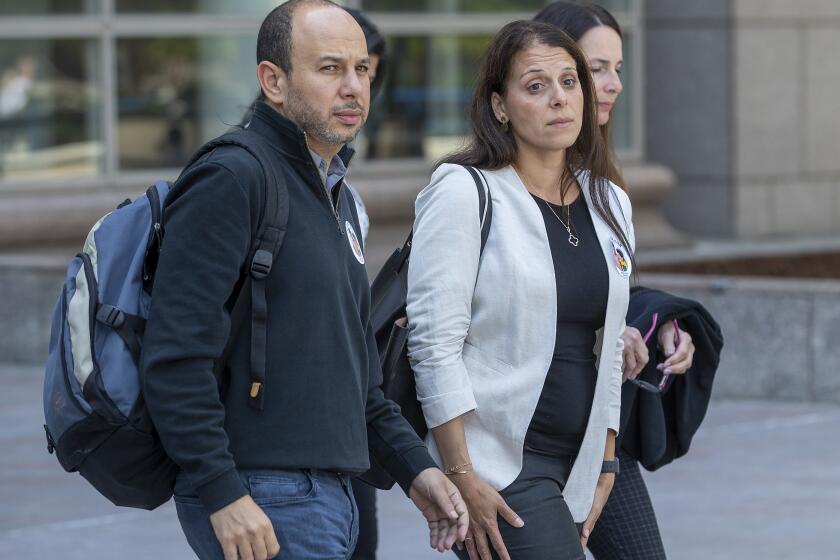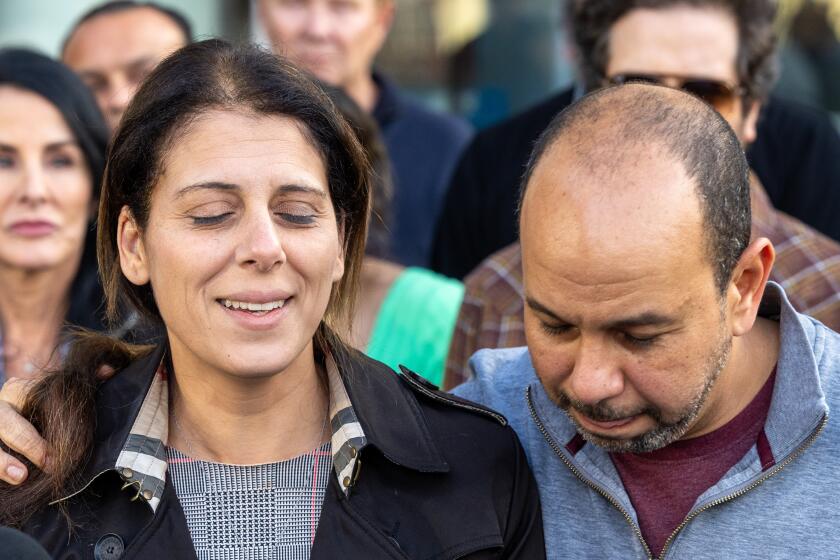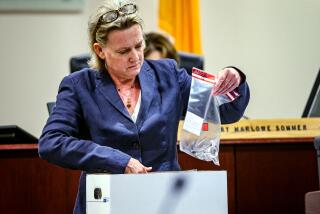Rebecca Grossman’s lawyers file motion for new trial, seek to overturn murder conviction
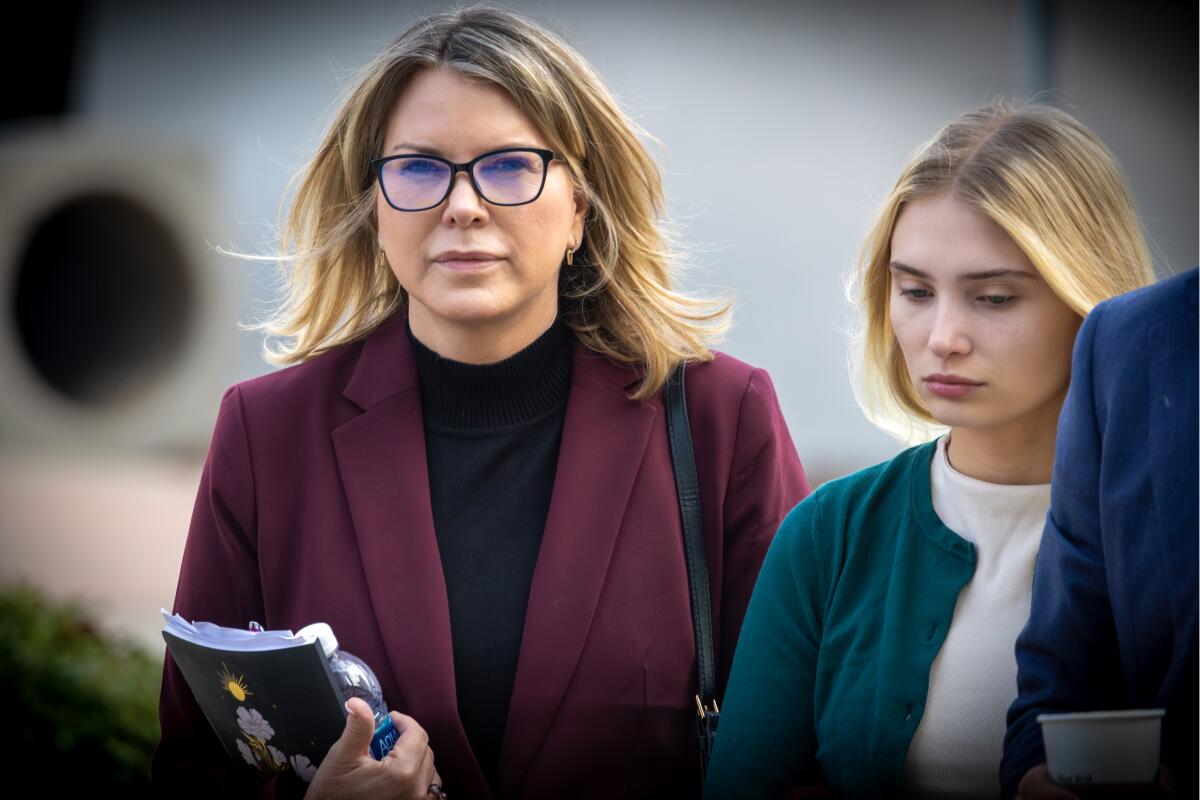
- Share via
Rebecca Grossman’s new attorneys are seeking a new trial that would overturn her second-degree murder conviction in the killing of two young brothers in a Westlake Village crosswalk, arguing that prosecutors failed to prove she acted with implied malice and that erroneous evidence was admitted.
Attorneys James Spertus and Lara J. Gressley filed a motion Monday in what many legal experts call a long shot, asking Los Angeles County Superior Court Judge Joseph Brandolino to toss her conviction in the murders of Mark and Jacob Iskander in September 2020.
“Vehicular homicide second-degree murder charges require evidence that the defendant acted with a ‘base antisocial motive and with a wanton disregard for human life,’ and there was no evidence presented at trial to support findings of such acts by Ms. Grossman in this case,” the lawyers wrote. “The defense respectfully moves for a new trial mindful of the victims’ losses and the emotion crying out for accountability.”
Spertus, who took over Grossman’s defense team after her conviction in February, said prosecutors never produced evidence to prove their case. They also argued that testimony related to a speeding ticket Grossman received in 2013 should not have been admitted, saying it was a weak attempt by the prosecution to show implied malice.
“The prosecutors misled the court and misstated the facts,” Spertus said in an interview with The Times. “We firmly believe she is innocent, and because of the prosecutors’ conduct, it is going to be overturned.”
The L.A. County D.A.’s office replaced the prosecutors after they began preparing a motion to remove Grossman’s new attorney because of a conflict of interest.
After a six-week trial filled with drama and emotion, a jury of nine men and three women found Grossman guilty of two counts of second-degree murder, two counts of gross vehicular manslaughter and one count of hit and run in the 2020 deaths of the Iskander brothers, ages 11 and 8. Grossman was remanded to jail and faces 34 years to life in prison at sentencing, which was delayed until at least June.
The new trial motion comes on the heels of the district attorney’s office reassigning the main prosecutors and removing their supervisor from the case. The change was prompted by a conflict-of-interest claim raised after their boss, Assistant Dist. Atty. Diana Teran, was charged with 11 felonies. Grossman’s lead attorney, Spertus, also represents Teran.
The change — in which Habib Balian, assistant head deputy of the Major Crimes Division, will now act as lead prosecutor — drew public criticism from the Iskander family. The original prosecutors, Ryan Gould and Jamie Castro, will continue to prosecute the case but now report to Balian, authorities said.
For Nancy Iskander, the conviction of Rebecca Grossman in the killing of her two young sons was a moment of satisfaction and grief.
During the trial, jurors were presented with differing accounts of Grossman and the deadly incident. Prosecutors alleged Grossman, 60, had cocktails with her then-lover, Scott Erickson, before racing him home — he in his black Mercedes sport utility vehicle and she in her white Mercedes SUV. The pair sped along Triunfo Canyon Road at more than 70 mph until they reached a crosswalk, where she fatally struck the children.
Grossman showed a “conscious disregard for human life,” prosecutors said, and knew her speed could be dangerous because police had warned her in the past.
But Grossman’s legal team repeatedly asked, “Where is Scott Erickson?” in trying to pin responsibility for the crash on the former Dodgers pitcher, saying he struck the boys first.
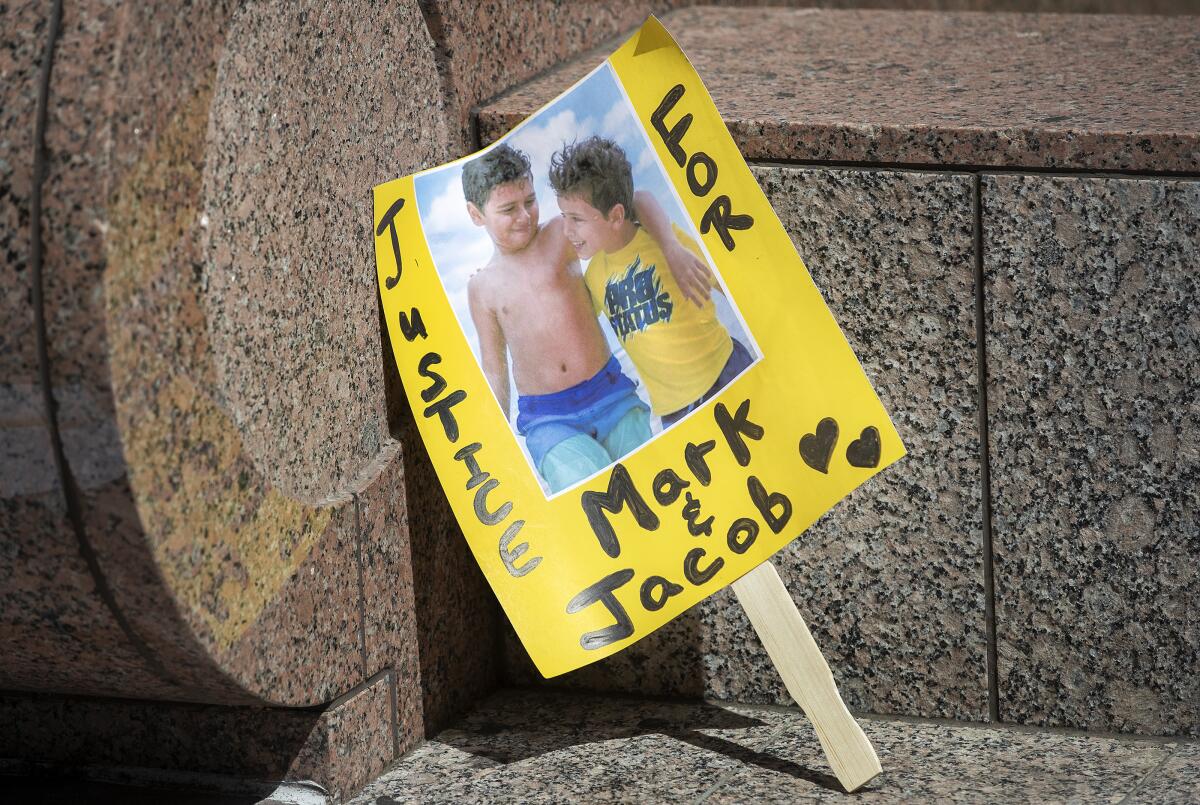
In seeking a new trial, Grossman’s new lawyers aim to undermine the prosecution’s foundation, specifically saying “the evidence was insufficient to prove the required elements of second-degree murder” as it relates to implied malice.
Spertus and Gressley also argued that two margaritas may have left Grossman impaired, as prosecutors argued at trial, but that doesn’t mean she knew she was a danger to life, they said.
Castro and Gould introduced evidence of Grossman’s past speeding but nothing showing “subjective knowledge that speeding on Triunfo Canyon Road would result in a fatal accident,” the defense lawyers argued.
They also referred to the the original prosecutors’ closing statements, in which “Ms. Grossman was driving 81 mph at the time the pedestrians came into view; she would have been traveling at approximately 118 feet per second.”
“In other words, no more than two seconds could have elapsed between the earliest possible moment that Ms. Grossman saw the pedestrians and the moment of impact,” they wrote in their argument for a new trial. “No reasonable juror could conclude that, in such a short time, Ms. Grossman saw the pedestrians, assessed the risk, appreciated the high probability of death that would result if she continued through the intersection, and then consciously formed the thought.”
Finally, they say there were errors in the jury instructions involving implied malice and testimony they called “erroneous and prejudicial” from a California Highway Patrol officer about Grossman’s 2013 speeding ticket.
“The evidence regarding the warning Officer [Robert] Leffler purportedly gave Ms. Grossman in 2013 was insufficient to warn her that her conduct in speeding was endangering human life,” the defense lawyers said. It was not a “notice that her speeding was so life-threatening that if she continued to speed in the future, such conduct would be ‘in conscious disregard for human life.’ ”
“There was insufficient evidence from which the jury could conclude that the defendant had the mental state required for implied malice murder,” they said.
They also argue evidence of alcohol consumption should not have been admitted at the trial, which they said became a DUI case. “The jury considered impairment evidence untethered to the appropriate legal safeguards,” the defense said. In addition, their client’s right not to incriminate herself was violated during a lengthy detention and questioning by deputies at the site of her wrecked SUV, they said.
Nancy Iskander testified Monday that while she didn’t see the Hidden Hills socialite strike her children, she said she saw Grossman pass where the boys were and heard the crash that killed them.
There was no mention of Erickson in the motion to seek a new trial. The previous lead defense attorney, Tony Buzbee, repeatedly pointed the finger at Erickson. Crash reconstruction experts for the defense testified that Erickson’s Mercedes struck the boys first, slipping Mark over his vehicle and onto the hood of Grossman’s SUV, which was following close behind.
Nancy Iskander, the boys’ mother, testified during trial that she heard revving engines and saw a black SUV speeding toward the intersection where she, her youngest son, Zachary, and Mark and Jacob were crossing. She dived out of the way, pulling Zachary to safety.
But she testified that a white Mercedes SUV was driving closely behind the black vehicle. When it went through the crosswalk, Iskander said, she heard an impact, and her two oldest boys were gone.
Jacob was found near the curb about 50 feet away. He was taken to a hospital, where he was pronounced dead a few hours later. Mark’s body was found 254 feet away, “every bone in his body ... broken,” Iskander testified.
Lawyers for both sides will be back in court Friday to address the potential conflict of interest issues related to Spertus representing both Grossman and Teran. Spertus, who has insisted Teran is innocent, said there is no conflict as he is adverse to prosecutors in both criminal cases.
More to Read
Sign up for Essential California
The most important California stories and recommendations in your inbox every morning.
You may occasionally receive promotional content from the Los Angeles Times.
